 W
W33 Thomas Street is a 550-foot-tall (170 m) skyscraper in Tribeca, Lower Manhattan, New York City. It stands on the east side of Church Street, between Thomas Street and Worth Street. The building is an example of the Brutalist architectural style. It is a telephone exchange or wire center building which contained three major 4ESS switches used for interexchange telephony, as well as a number of other switches used for competitive local exchange carrier services. However, it is not used for incumbent local exchange carrier services, and is not a central office. The CLLI code for this facility is NYCMNYBW. The building has also been described as the likely location of a National Security Agency (NSA) mass surveillance hub codenamed TITANPOINTE.
 W
W60 Hudson Street, formerly known as the Western Union Building, is a 24-story, 371-foot-tall (113 m) telecommunications building in the Tribeca neighborhood of Manhattan in New York City. Built in 1928–1930, it was one of several Art Deco-style telecommunications buildings designed by Ralph Thomas Walker of Voorhees, Gmelin and Walker in the early 20th century. 60 Hudson Street spans the entire block between Hudson Street, Thomas Street, Worth Street, and West Broadway.
 W
W375 Pearl Street, also known as Intergate.Manhattan, the Verizon Building, and One Brooklyn Bridge Plaza, is a 32-story office and datacenter building in Civic Center. Lower Manhattan, New York City, at the Manhattan end of the Brooklyn Bridge. The building was built for the New York Telephone Company and was completed in 1976. In 2016, the building underwent a renovation.
 W
WThe American Telephone & Telegraph Co. Building was a historic building located on the hill just north of downtown Davenport, Iowa, United States. It was listed on the National Register of Historic Places in 1983. The building has subsequently been torn down.
 W
WThe American Telephone & Telegraph Company Building, located in Denmark, a city in Bamberg County, South Carolina was built in 1922.
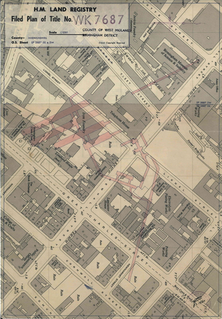 W
WAnchor Exchange was an underground, hardened telephone exchange built in Birmingham, England. Construction commenced in 1953 under the guise of building an underground railway and opened in September 1957 at a cost of £4 million. It was located nominally on Newhall St. However its network of tunnels extended from at least the Jewellery Quarter to Southside.
 W
WThe AT&T Madison Complex Tandem Office is a 17-story, 79 m (259 ft) building in Los Angeles, California, completed in 1961. With its microwave tower, used through 1993, bringing the overall height to 137 m (449 ft), it is the 29th tallest building in Los Angeles. The building serves 1.3 million phone lines in area code 213, and other Los Angeles area codes, for foreign long-distance calling.
 W
WThe AT&T Huron Road Building is an art deco skyscraper located at 750 Huron Road in downtown Cleveland, Ohio. It serves as the corporate headquarters for Ohio Bell, a regional telephone company owned by AT&T. The building has 24 stories and rises to a height of 365 ft. It was designed by the firm of Hubbell and Benes, in what they called "Modern American Perpendicular Gothic", a style influenced by Eliel Saarinen's unrealized design for the Tribune Tower in Chicago. Work on the building began in 1925 and was completed in 1927 at a cost of $5 million. It was briefly the tallest building in Cleveland, surpassed in 1928 by the Terminal Tower.
 W
WBaynard House is a brutalist office block in Queen Victoria Street in Blackfriars in the City of London, occupied by BT Group. It was built on the site of Baynard's Castle. Most of the land under it is a scheduled monument. From 1982 to 1997 it housed the BT Museum.
 W
WThe Bell Telephone Building, located at 920 Olive Street in downtown St. Louis, Missouri, was built in 1889 for the purposes of housing the switchboard and local headquarters of the Bell Telephone Company. The building served as the main telephone exchange for St. Louis from its construction until 1926, and it is the oldest extant telephone building in St. Louis.
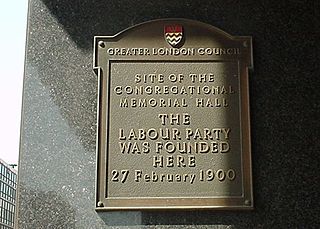 W
WCaroone House was an office block at 14 Farringdon Street, London EC4, which was built in 1972 on the site of the Congregational Memorial Hall which had been demolished in 1968.
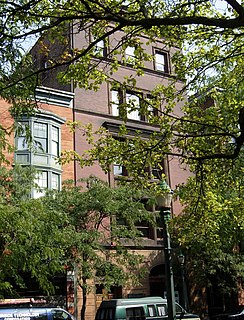 W
WThe Central New York Telephone and Telegraph Building, also known as the Onondaga Historical Association Building, designed by Henry W. Wilkinson, was listed on the National Register of Historic Places in 1973, and is part of the Montgomery Street-Columbus Circle Historic District, listed in 1979. It was the first building in Syracuse designed specifically to house the telephone company, and did so from 1899 to 1905, when the company moved to bigger facilities. In 1905, the Onondaga Historical Association purchased the building.
 W
WThe CenturyLink Building in Minneapolis, Minnesota was completed in 1932 and became the tallest building to be built in the city during the 1930s, 1940s, and 1950s. Named for its current owner, it was previously known as the Qwest Building and the Northwestern Bell Telephone Building. Originally standing 346 feet (105 m) tall, the structure grew to 416 feet (127 m) with the addition of a microwave antenna "crown" in 1958, followed by the addition of a second tier of microwave antennas in 1972. It was the second-tallest building in the city after the slightly older Foshay Tower for many years, and stands slightly taller than the tower of its neighbor, Minneapolis City Hall.
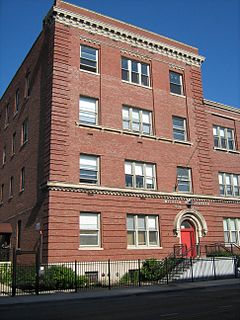 W
WThe Chicago Telephone Company Kedzie Exchange is a historic telephone exchange building located at 17 S. Homan Avenue in the East Garfield Park neighborhood of Chicago, Illinois, United States.
 W
WCincinnati and Suburban Telephone Company Building is a registered historic building in Cincinnati, Ohio. It was designed by Harry Hake, and listed in the National Register on April 20, 1995.
 W
WThe Faraday Building is a building in the City of London. Because of its location, the building is a prominent feature of the London skyline despite being only 11 storeys high. The Faraday Building was the GPO's first telephone exchange in London, and is still used by BT Group. The building fronts onto Queen Victoria Street and backs onto Knightrider Street.
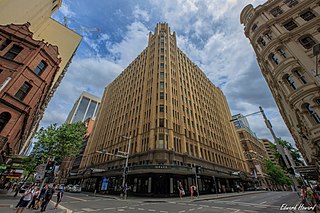 W
WThe Grace Building is a heritage-listed building of the Federation Skyscraper Gothic style that houses a bar, hotel, cafe and restaurant and is located at 77-79 York Street in the Sydney central business district in New South Wales, Australia.
 W
WGuardian Exchange was an underground telephone exchange built in Manchester from 1954 to 1957. It was built together with the Anchor Exchange in Birmingham and the Kingsway exchange in London – all believed to provide hardened communications in the event of nuclear war; as well as linking the UK government in London to the US Government in Washington, D.C. by means of a secure and hardened transatlantic telephone cable making landfall near Oban and running through Glasgow, Manchester and Birmingham. Today the underground site is used for telephone cabling. Constructed at a depth of below 35 metres (115 ft), the tunnels are about 2 metres (80 in) in diameter. The exchange cost around £4 million, part of which was funded by the United Kingdom's NATO partners.
 W
WThe Highgate Wood telephone exchange was the first all-electronic telephone exchange in Britain. It was built in the London suburb of Highgate by members from Joint Electronic Research Council (JERC).
 W
WKingsway telephone exchange was a Cold War-era hardened telephone exchange underneath High Holborn in London. Initially built as a deep-level air-raid shelter in the early 1940s, it was instead used as a government communications centre. In 1949 the General Post Office (GPO) took over the building, and in 1956 it became the UK termination point for TAT-1, the first transatlantic telephone cable. Closure of the facility began in the 1980s.
 W
WThis is a list of notable telephone company buildings.
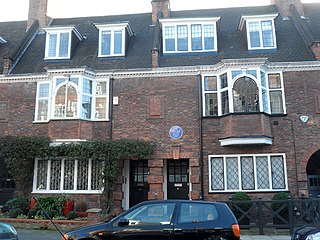 W
WMallord Street is a street in London, England in the Royal Borough of Kensington and Chelsea. It was named after Joseph Mallord William Turner who had lived in Chelsea. There are no other streets named Mallord Street in Great Britain.
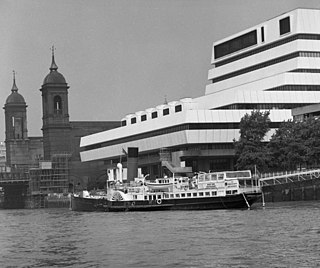 W
WMondial House was a main telecommunications hub in central London on the banks of the River Thames. It was known as an international switching centre (ISC). Built in 1978 the building was seen as controversially modern-looking. It was demolished in 2006.
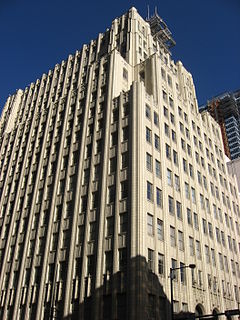 W
WThe Mountain States Telephone Building is a historic building located at 931 14th Street in Denver, Colorado. It was listed on the National Register of Historic Places on January 26, 2005.
 W
WThe New England Telephone Building is a historic utility building at 10 Merrymount Road in Quincy, Massachusetts. This two-story Classical Revival brick structure was built c. 1906 and doubled in size in 1924, reaching its present proportions. It housed the telephone exchange of the New England Telephone Company until 1940, after which time it was converted to office space.
 W
WThe Old Telephone Exchange is a building located in Belgrade, Serbia, at 47 Kosovska Street. It was built according to the project by Branko Tanazević for the telephone exchange and is the first such building in Serbia. It was completed in 1908. The third floor was added later, after the First World War. The building is under state protection since 1981 as a cultural property of great importance. Conservation works were performed in 1988.
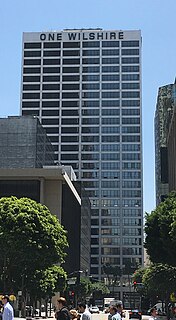 W
WOne Wilshire is an office building located at the junction of Wilshire Boulevard and South Grand Avenue in downtown Los Angeles. Notwithstanding the building's name, its actual address is 624 S. Grand Avenue. Built in 1966, the thirty story high-rise was designed by Skidmore, Owings and Merrill, and for its first decades in existence it was used almost exclusively by law firms. In the early 1990s it began housing largely telecommunications companies, and in 1992 One Wilshire underwent a major renovation, with the improvements largely related to telecommunication network upgrades. Around this time a large meet-me room was constructed on the fourth floor, and in 2008 Wired claimed that One Wilshire had "the world's most densely populated Meet-Me room", with around 260 ISPs with interconnected networks.
 W
WThe Providence Telephone Company is an historic commercial building at 110-116 Union Street in downtown Providence, Rhode Island. Now a five-story brick, stone, and terracotta structure, it was built with three stories in 1893 to a design by Stone, Carpenter & Willson. The street level facade is limestone, with a three-part entrance bay and two smaller flanking bays. The entrance bay is partititoned by Ionic columns, and the smaller outer bays are flanked by Corinthian columns. A complex entablature of grotesquework separates the second and third floors. The fourth and fifth floors, added in 1906, are more simply treated, with a simple parapet at the top. The Providence Telephone Company, incorporated in 1880, occupied this building from its construction until 1917, by which time its rapid growth had outgrown the building's capacity.
 W
WThe Rocky Mountain Bell Telephone Company Building in Idaho Falls, Idaho, at 246 W. Broadway Ave., was built in 1910. It was listed on the National Register of Historic Places in 1984.
 W
WSnow Camp Mutual Telephone Exchange Building is a historic telephone exchange building located at Snow Camp, Alamance County, North Carolina. It was built in 1915, and is a small, square, vernacular, two-story frame structure. It has a pyramidal roof and rests on a stone foundation. One-story gabled wings were added in 1927 when the building was converted into a dwelling. A one-story kitchen addition was built in 1986. The building housed the switchboard, operator, and company equipment.
 W
WThe Southern Bell Telephone Company Building, now known as the AT&T Communications Building, is the main telephone exchange for downtown Atlanta, Georgia. It is located at 51 Peachtree Center Avenue, on the northeast corner of Auburn Avenue.
 W
WThe Southern New England Telephone Company Building is a historic high-rise office building at 55 Trumbull Street in Hartford, Connecticut. It is a twelve-story Art Deco building built in 1931 for the Southern New England Telephone Company, which occupied it into the 1990s. Now mainly residential, it was listed on the National Register of Historic Places in 2004.
 W
WStag Lane Aerodrome was a private aerodrome between 1915 and 1933 in Edgware, north London, UK.
 W
WThe Telephone Co. Building in Grand Forks, North Dakota, United States, was built in 1904. It was listed on the National Register of Historic Places in 1982.
 W
WThe Telephone Exchange Building is a historic building at 23 Union Street in downtown Norwich, Connecticut, behind Norwich Town Hall. Built in 1906-07, it was the first purpose-built telephone exchange building in the city, and is a little-altered example of period exchanges built by the Southern New England Telephone Company. The building now houses city offices. It was listed on the National Register of Historic Places on November 28, 1983.
 W
WThe Union Electric Telephone & Telegraph is a historic building located in a small-scale commercial area just north of downtown Davenport, Iowa, United States. It has been listed on the National Register of Historic Places since 1983.
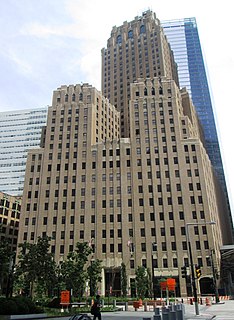 W
WThe Verizon Building is a 32-story office and residential building at 140 West Street in Lower Manhattan, New York City. The Verizon Building was designed in the Art Deco style by Ralph Walker of Voorhees, Gmelin and Walker, and was Walker's first major commission as well as one of the first Art Deco skyscrapers. It occupies the entire block bounded by West Street to the west, Barclay Street to the north, Vesey Street to the south, and Washington Street to the east, abutting the World Trade Center.
 W
WThe Webster Telephone Exchange Building is located at 2213 Lake Street in North Omaha, Nebraska. It was designed by the well-known Omaha architect Thomas Rogers Kimball. After the Easter Sunday Tornado of 1913, the building was used as the center of recovery operations. In 1933, American Bell donated the building to the Omaha Urban League.